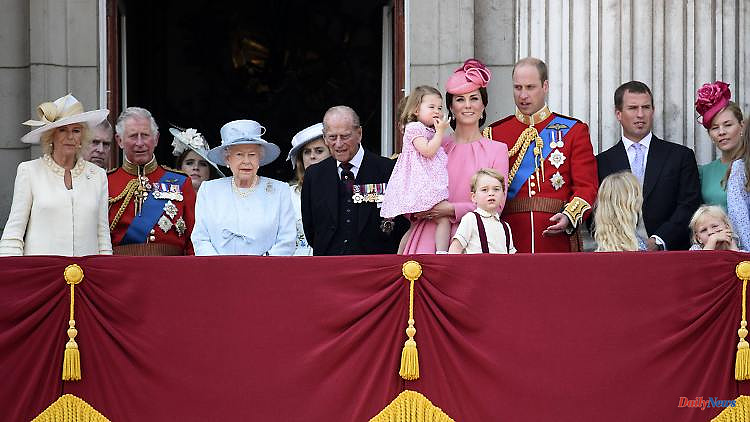They are the figurehead of the United Kingdom: the British royal family. At the same time, she has German roots that reach far back. The original family name also comes from Germany. But how German are today's royals?
Hardly anything is considered as British as the late Queen Elizabeth II and her royal family. What is less known, however, is that they all have German roots. Even her family name was originally "von Sachsen-Coburg und Gotha". Only in 1917 was it changed to "Windsor" because the United Kingdom fought against the German Empire in World War I.
The ancestors of today's Windsors came mainly from the German noble houses of Saxe-Coburg and Gotha, Hesse, Hanover and Prussia. However, that does not mean that the late Queen and her family were and are exclusively German. Aristocrats from very different backgrounds also married into the family.
A look at the family tree reveals that King George I, who was born in Hanover, was a German in London in 1714 and with him the House of Hanover took over the British throne. George I is said to have spoken English poorly and preferred to correspond in French. His son and heir to the throne, George II, was a little less German, since his mother was also half French.
However, George II and his successor had a penchant for German wives. That is why one could describe the later kings George IV (1820-830) and his brother Wilhelm IV (1830-1837) as fairly German. Her niece, the later Queen Victoria, who gave her name to the Victorian era in the 19th century, had almost 100 percent German ancestors again because her mother was also German.
Victoria also spoke fluent German and in turn married a German: Albert of Saxe-Coburg and Gotha. With him, the name of the British royal family also changed: "from Hanover" became "from Saxe-Coburg and Gotha". Incidentally, the couple popularized the previously purely German tradition of the Christmas tree in the United Kingdom. Albert also bought the country estate of Balmoral Castle in Scotland, where his great-great-granddaughter, Queen Elizabeth II, later spent her last days and died.
But how German was Queen Elizabeth II? Her grandfather George V had mostly German ancestors, but his wife Maria von Teck, who was also German, also had Hungarian ancestors. Their son and later King George VI. was still mostly German, but married a genuine British woman: Elizabeth Angela Marguerite Bowes-Lyon, later affectionately known as Queen Mum. As a result, their daughter Elizabeth - who later became Queen - can no longer be described as German with a clear conscience.
However, Elizabeth eventually married Philip of Greece and Denmark in 1947. This had mostly German ancestors, but also a few Danish and Russian. After the marriage, Philip, who spoke fluent German, discarded his German nobility title "von Schleswig-Holstein-Sonderburg-Glücksburg" and changed it to "Mountbatten". The eldest son from this union, the current King Charles III, has roughly half German ancestors in his pedigree.
Charles' two sons, William and Harry, are from his marriage to Diana Spencer - who became world famous as Princess Diana. Diana, however, was of British descent. Thus, the ancestors of the current number one heir to the throne, William, are mostly descended from the British Isles.
And the trend continues, as William married Englishwoman Catherine Middleton and fathered three children with her. The oldest is number two in the current line of succession: George. German is only the minority of his ancestors.
Nevertheless, there are still family ties between the British royal family and Germany: Karin Vogel, a descendant of Sophie von der Pfalz, who was declared heiress to the British throne at the beginning of the 18th century, comes from the Lüneburg Heath. Although her noble ancestor never became queen, Vogel is in the list of successors of the royal family - albeit at the bottom. Before her, thousands of other relatives would have to fail for her to take the place on the throne.












